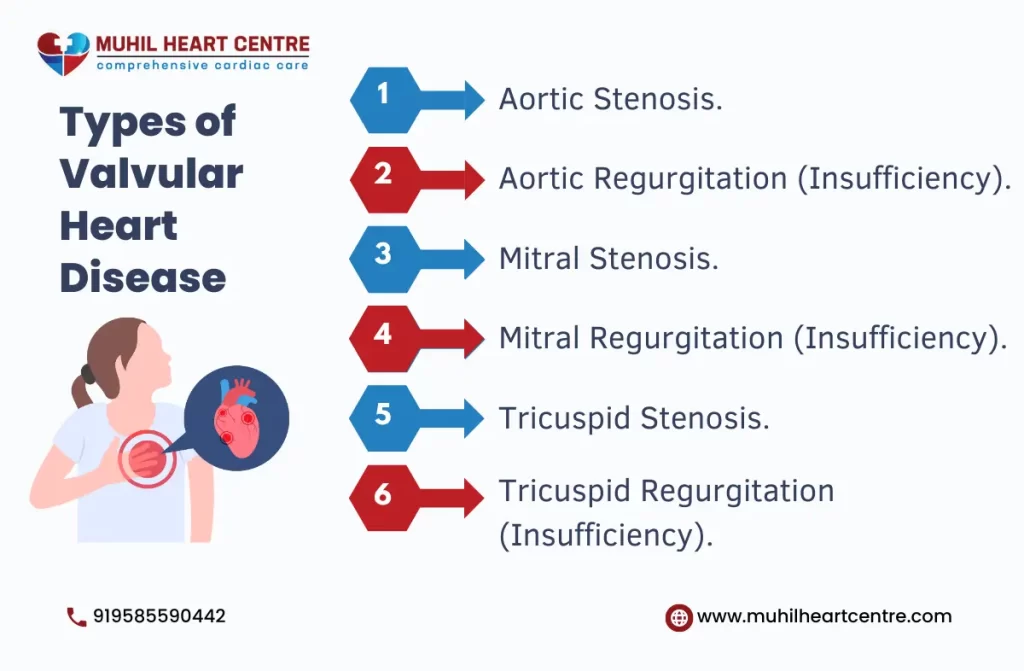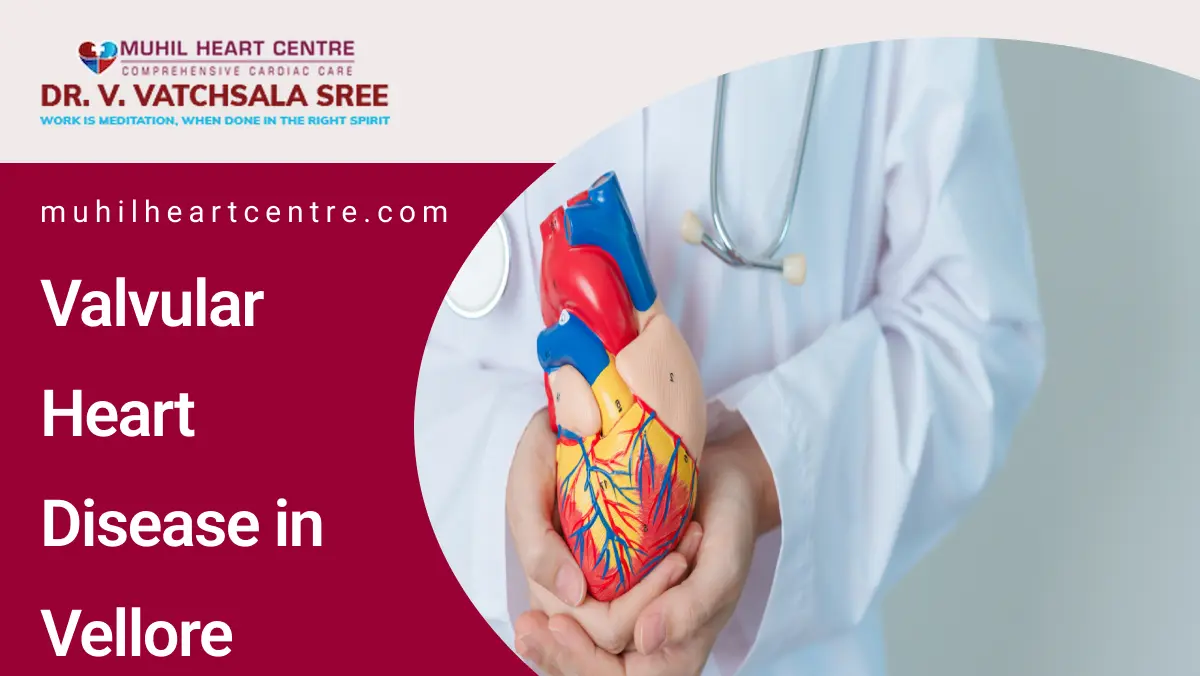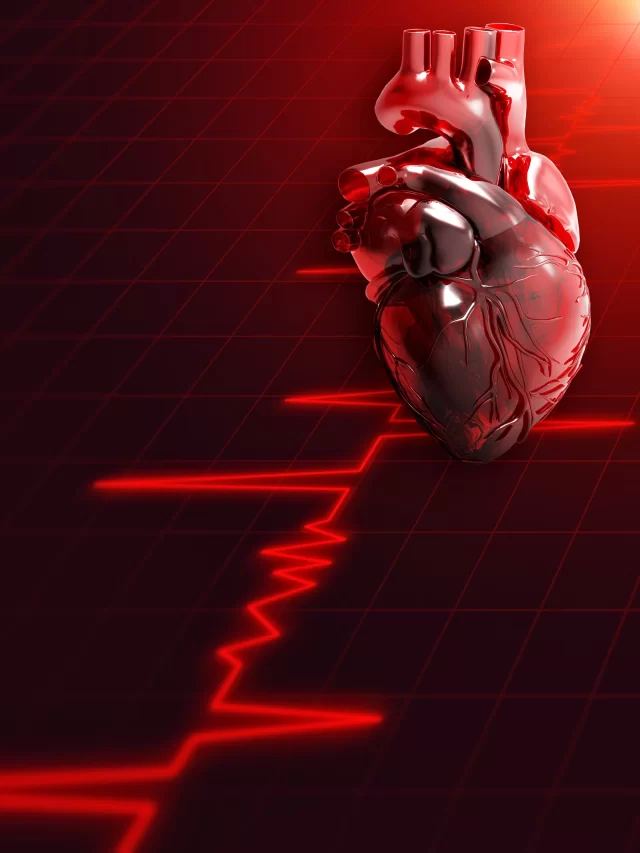Valvular heart disease (VHD) refers to a group of conditions that affect the heart’s valves, impairing their ability to function properly. These valves, including the aortic, mitral, tricuspid, and pulmonary valves, play a crucial role in maintaining blood flow in the heart and preventing backflow. When these valves become damaged or dysfunctional, it can lead to significant valvular heart disease in Vellore.
In this comprehensive guide, we will explore the various aspects of valvular heart disease, its causes, symptoms, diagnostic approaches, and the latest treatment options available, with a focus on the cardiologist’s role in managing this condition.

Types and Causes of Valvular Heart Disease
Valvular heart disease can be broadly classified into two main categories: stenosis and regurgitation. Stenosis occurs when a valve becomes narrowed, restricting blood flow, while regurgitation happens when a valve fails to close completely, causing blood to flow backward. The common causes of VHD include:
- Degenerative changes: Aging can lead to the progressive deterioration of heart valves, resulting in either stenosis or regurgitation.
- Rheumatic fever: This valvular heart disease in Vellore is an inflammatory condition caused by untreated streptococcal infections that can damage heart valves, often leading to significant VHD.
- Infective endocarditis: Bacterial infections can attack the heart valves, causing severe damage and requiring immediate medical attention.
- Congenital defects: Some individuals are born with structural abnormalities in their heart valves, predisposing them to valvular heart disease.
- Other factors: Conditions such as hypertension, atherosclerosis, and connective tissue disorders can contribute to the development of VHD.
Signs and Symptoms
The symptoms of valvular heart disease in Vellore can vary depending on the type and severity of the condition. Common signs include:
- Shortness of Breath: Patients may experience difficulty breathing, especially during physical activity or while lying down.
- Fatigue: Reduced cardiac output can lead to a sense of tiredness and weakness.
- Palpitations: Irregular heartbeats or a sensation of “fluttering” in the chest may occur.
- Chest Pain or Discomfort: Some individuals may experience chest pain, particularly during exertion or emotional stress. This required medical attention by the heart valve specialist in Vellore.
- Dizziness and Fainting: In severe cases, reduced blood flow can cause dizziness or even fainting spells.
Diagnosis of Valvular Heart Disease in Vellore
The heart valve specialist in Vellore plays a vital role in diagnosing valvular heart disease in Vellore. They employ a combination of patient history, physical examination, and diagnostic tests to confirm the presence and severity of VHD:
- Patient History: Cardiologists will inquire about the patient’s symptoms, medical history, and any family history of heart disease.
- Physical Examination: Doctors may listen to the heart sounds using a stethoscope to detect any abnormal murmurs or other sounds indicative of VHD.
- Echocardiography: This non-invasive imaging test uses sound waves to create detailed images of the heart’s structure and function, allowing cardiologists to assess valve abnormalities.
- Electrocardiogram (ECG or EKG): An ECG records the heart’s electrical activity and can help identify irregular rhythms and other cardiac issues.
- Cardiac Catheterization: In certain cases, a cardiologist may recommend this invasive procedure to measure pressures within the heart and assess valve function more accurately.
Treatment Options
The treatment approach for valvular heart disease in Vellore depends on the severity of the condition and the patient’s overall health. Cardiologists may recommend one or more of the following treatment options:
- Medications: Medications can help manage symptoms, reduce blood pressure, and prevent complications related to VHD.
- Valve Repair: In some cases, a damaged heart valve can be surgically repaired to restore its normal function.
- Valve Replacement: Severely damaged valves may require surgical replacement with either mechanical or biological valves.
- Transcatheter Procedures: Minimally invasive procedures, such as transcatheter aortic valve replacement (TAVR), offer an alternative to surgery for high-risk patients.
- Lifestyle Changes: The heart valve specialist in Vellore often emphasizes the importance of lifestyle modifications, including a heart-healthy diet, regular exercise, and smoking cessation.
Benefits of Heart Valvular Treatment
The benefits of heart valvular treatment depend on the specific condition and the type of treatment provided. Heart valve disorders can include conditions such as stenosis (narrowing) or regurgitation (leakage) of the heart valves. Treatment options may include medication, minimally invasive procedures, or surgical interventions. Here are some potential benefits of heart valvular treatment:
- Improved Blood Flow: Treating heart valve disorders helps restore or improve the normal flow of blood through the heart. This can enhance overall cardiovascular function and reduce symptoms associated with poor blood circulation.
- Symptom Relief: Many people with heart valve disorders experience symptoms such as chest pain, shortness of breath, fatigue, and dizziness. Valvular treatment can alleviate or significantly reduce these symptoms, improving the patient’s quality of life.
- Prevention of Complications: Addressing heart valve issues can prevent or minimize the risk of serious complications, such as heart failure, atrial fibrillation, or blood clots, which can lead to stroke.
- Enhanced Exercise Tolerance: Improved heart valve function can lead to increased exercise tolerance and stamina. Patients may find that they can engage in physical activities more comfortably after treatment.
- Reduced Risk of Heart Failure: Heart valve disorders can contribute to heart failure if left untreated. Treatment can reduce the strain on the heart and lower the risk of heart failure.
- Prolonged Life Expectancy: Successful treatment of heart valve conditions can contribute to a longer and healthier life, especially when the underlying issues are addressed in a timely manner.
Conclusion
To conclude, valvular heart disease is a significant cardiovascular condition that requires expert management from cardiologists. Through a combination of diagnostic techniques and advanced treatment options, cardiologists at the Muhil Heart Centre play a critical role in caring for patients with valvular heart disease in Vellore, helping them lead healthier and more fulfilling lives. If you or someone you know is experiencing symptoms of VHD, it is essential to seek medical attention promptly to receive proper evaluation and care.
Read also Best Interventional Cardiologist in Vellore.


